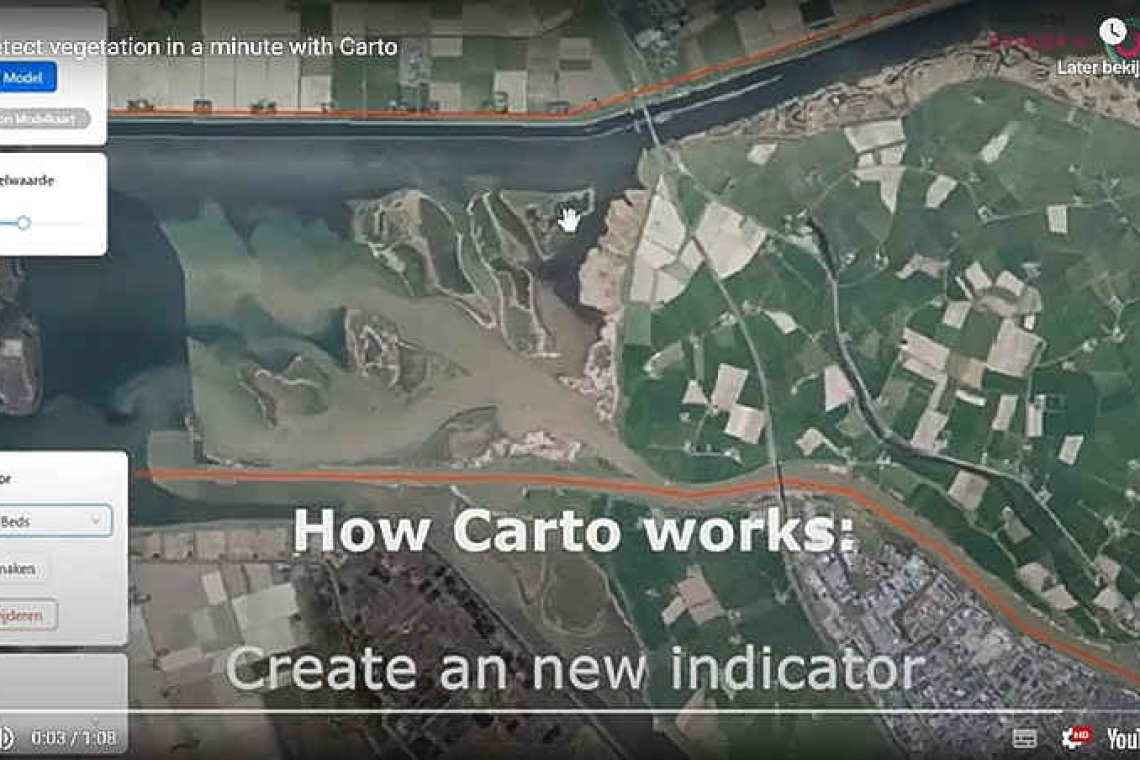A one-minute demonstration video is available, along with a detailed tutorial featuring subtitles.
PHILIPSBURG--The Dutch Caribbean Nature Alliance (DCNA) announced its involvement in the development of Carto, a pioneering Web application designed to modernize the monitoring and protection of vital habitats across the Dutch Caribbean. Partially funded by DCNA and developed by Spheer.ai, Carto uses satellite imagery and artificial intelligence (AI) to allow users to create custom maps for the management and monitoring of habitat areas.
Carto is an advanced AI-powered monitoring tool that integrates artificial intelligence and satellite imagery to provide real-time, precise monitoring of land and water ecosystems. With Carto, users can generate their own monitoring applications, train AI models, and create predictive maps based on various ecological indicators. This tool offers unprecedented precision and scalability, enabling the monitoring of ecological changes across the entire Caribbean region with ease. Whether tracking biodiversity, managing natural resources, or observing habitat shifts, Carto provides essential data for informed decision-making.
One of Carto’s most notable features is its ease of use. Users only need to input a few sample data points to generate highly accurate maps and trends. From tracking mangrove forests and seagrass meadows to monitoring invasive species and sargassum blooms, Carto can be customized to track a wide array of ecological indicators. This flexibility makes it an invaluable tool for conservationists, researchers, and policymakers.
During its alpha phase, Carto will be tested by DCNA’s Network partners from five islands: Bonaire, Curaçao, Saba, St. Maarten, and St. Eustatius. While Aruba is not actively participating in the testing phase, it remains included in the platform, allowing for the evaluation of scalability and accuracy on the island. Each participating island will train AI models to monitor specific indicators such as mangroves, invasive species, and seagrass. Although the initial indicators focus on mangroves, invasive species, seagrass, and sargassum, Carto’s versatility allows users to train AI models to track any ecological factor, offering a completely customizable experience.
DCNA is excited about the potential of Carto to strengthen conservation efforts as part of its new Conservation and Restoration of Key Habitats program. The platform provides an unprecedented level of precision, enabling local stakeholders and international partners to better address challenges and protect ecosystems crucial to the Caribbean’s environmental and economic health.
For those interested in learning more about Carto, a brief one-minute demonstration video is available on DCNA’s website, along with a detailed tutorial featuring subtitles. DCNA encourages all involved in nature conservation, environmental management, or research to explore Carto’s capabilities and consider how it can enhance their work in protecting the region’s precious habitats.







